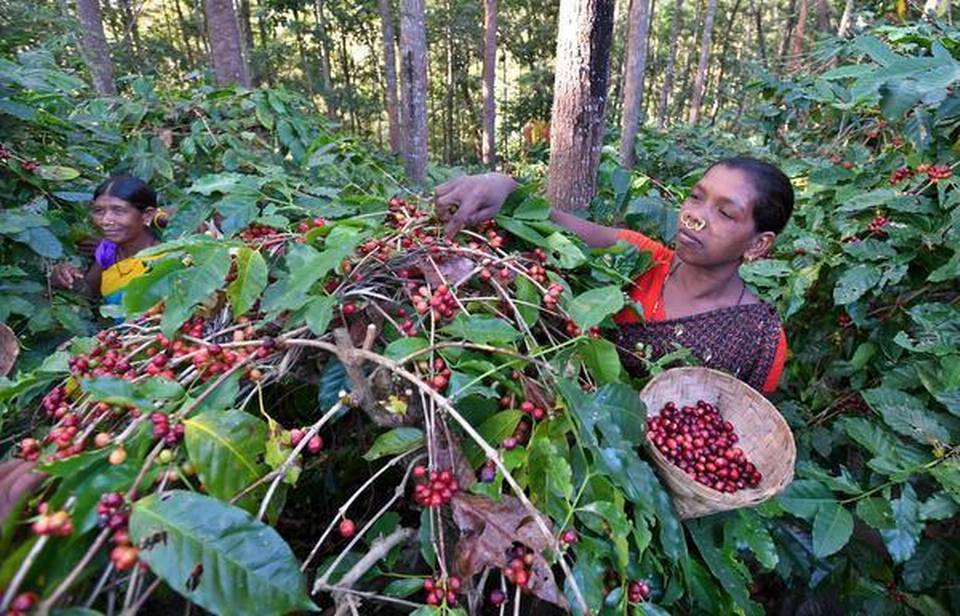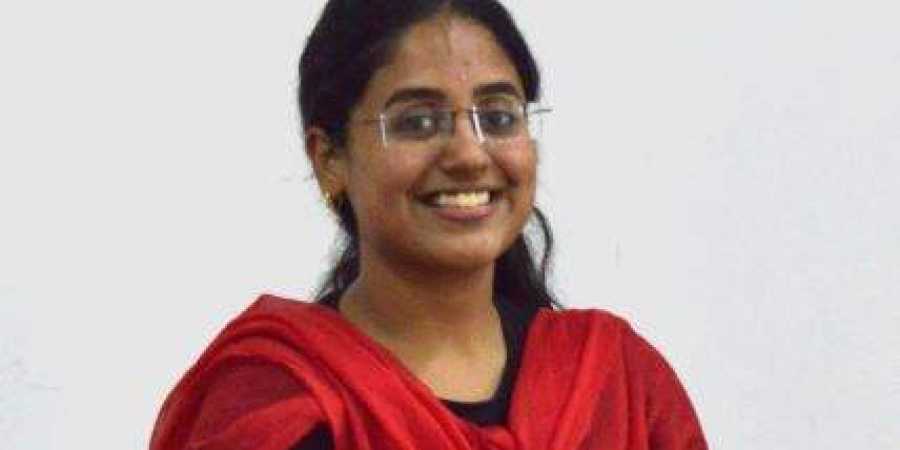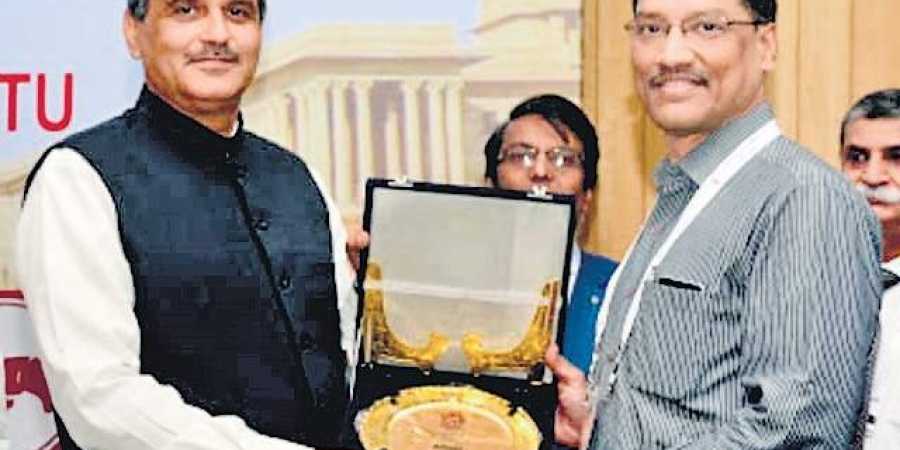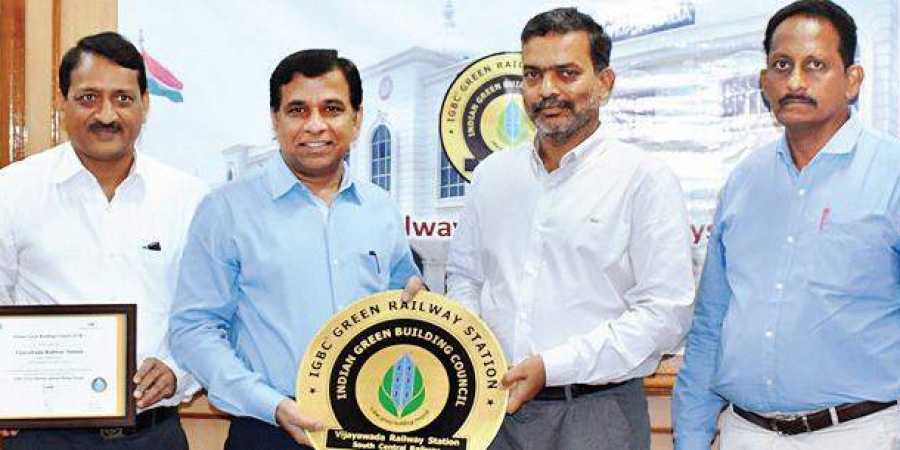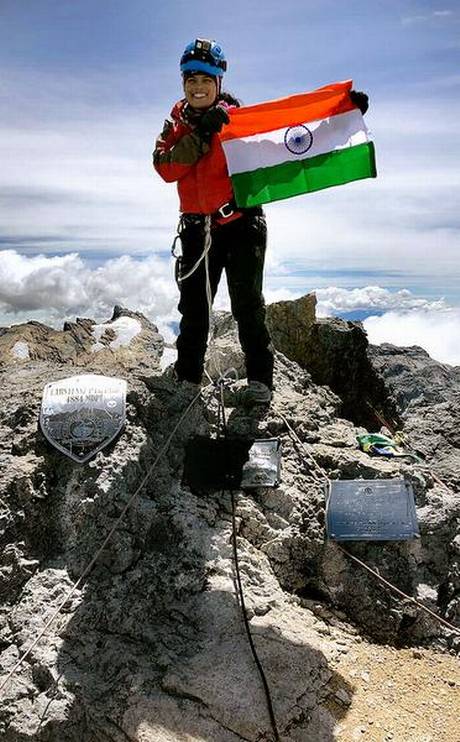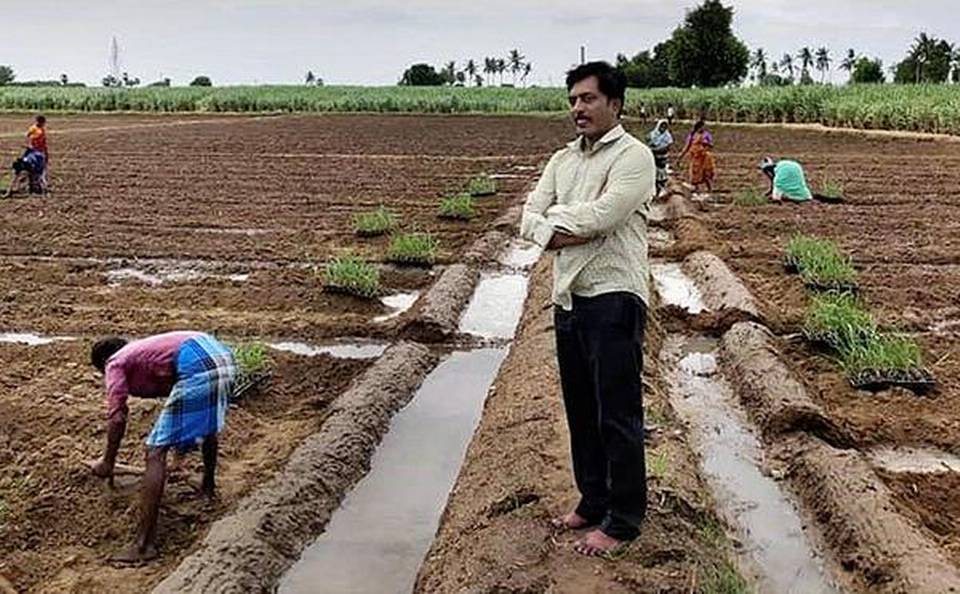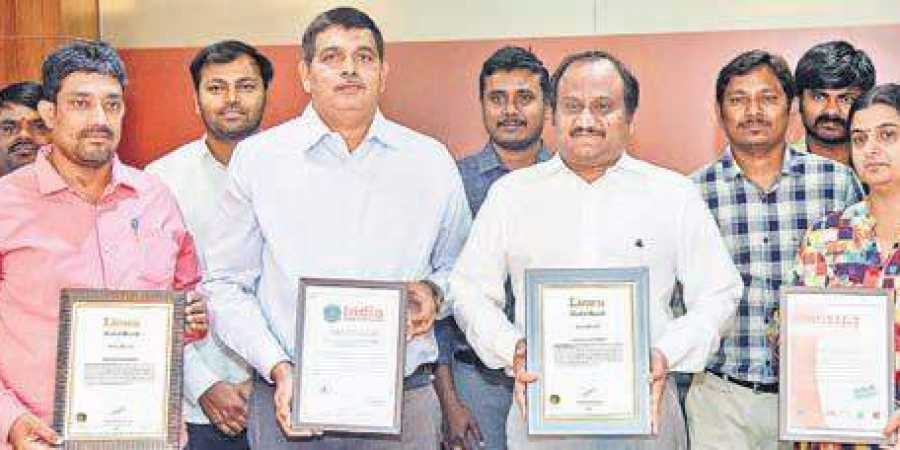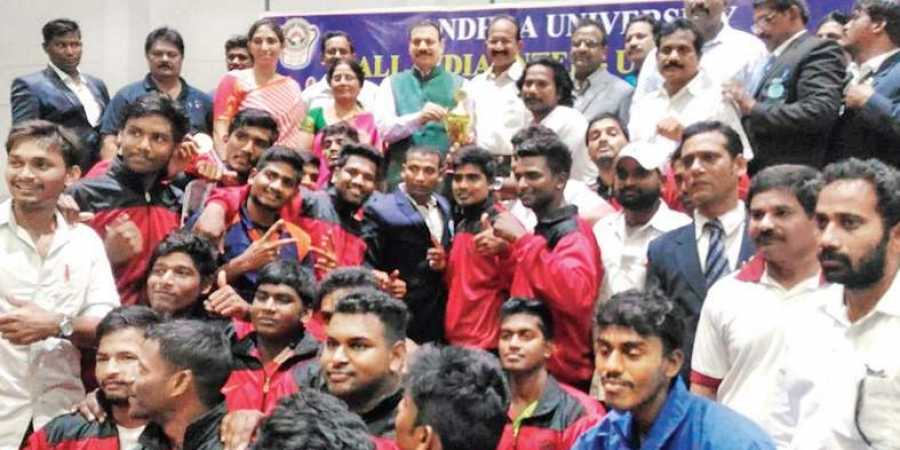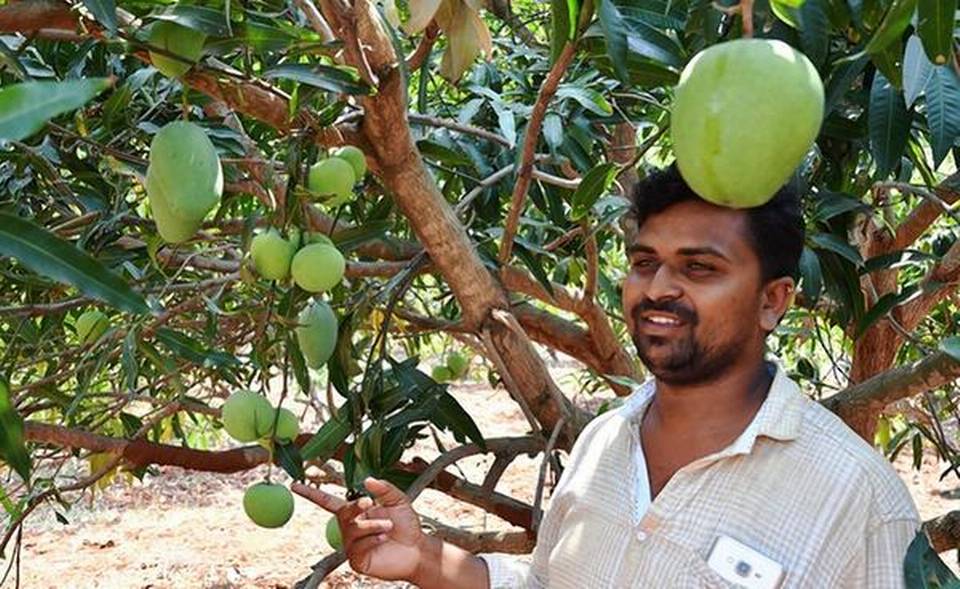
School dropout used grafting technique to achieve the sweet success
This school dropout is scripting a success story in the field of horticulture. He has grafted 24 varieties of mangoes on a single tree in his orchard spread over seven acres.
Everyone laughed at Kuppala Rama Gopalakrishna, 25, when he shared his plans to go for grafting technology to tide over the ‘off-season on-season’ problem associated with the mango crop, in 2015. In less than four years, he became a role model in his village and also villages nearby. Unlike other mango growers, he doesn’t harvest the crop and transport the produce to nearby mandi or Nunna market. “Instead, the prospective buyers visit my garden in view of the quality. We harvest the crop in front of them,” he says.
Mr. Gopalakrishna recalls that the mango yield of Chinna rasalu, Banginapalli and Collector (Totapuri) mangoes in his farm was not encouraging in 2015, and his well-wishers advised him to clear the garden and go for fresh plantation.
“But, by then five years of our life and lakhs of rupees were spent on the orchards. I did not want our sweat and toil to go waste. So, I started experimenting with grafting,” he says.
Showing the mangoes grown on the experimented tree, Mr. Gopalakrishna explains each variety: Banginapalli, Pachadara kalasa, Suvarn Rekha, Kobbari mamidi, Alphonso, Chinna rasalu, Pedda rasalu, Nalla rasalu, Nuzvid mamidi, Dasheri, Panduru mamidi, Collector, Himayat, Jalam, Neelisha, Mallika and some local varities. “And, this is Punasa mamidi,” he says, “which will grow throughout the year.”
The farmer managed to grab the attention of the Horticulture Department officials and was felicitated by the then Krishna District Collector B. Lakshmikantham for his experimenting spirit and innovation a year ago.
“This feat and success would not have been a reality had I followed my well-wishers’ advice. Now, I get invitations by farmers from nearby villages to guide them in emulating my techniques. And, I get invitations from my friends who advised me to cut the trees,” he smiles.
Now, Mr. Gopalakrishna has plans to grow more than 50 varieties of locally-available mangoes in his orchard and also go for high-density cultivation. “We also have a share in another three acres. I will go for high-density plantation there,” he adds.
source: http://www.thehindu.com / The Hindu / Home> News> States> Andhra Pradesh / by G.V.R. Subba Rao / Vadlamanu – April 27th, 2019

